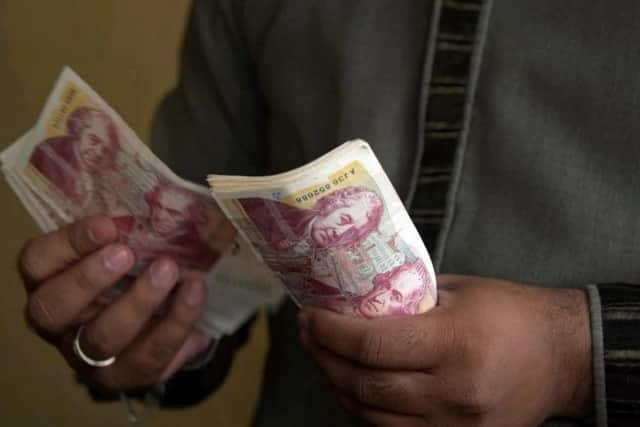MP helps Somali people in Milton Keynes send money home during pandemic
and live on Freeview channel 276
Diaspora communities are people who live outside their country of origin or ancestry but maintain active connections with it.
Milton Keynes has one of the largest Somali communities in the UK and a large number of its members regularly send money back to Somalia to help their relatives.
Advertisement
Advertisement
But during lockdown, the majority of money transfer retail shops closed, causing major poverty problems for the senders, many of whom are keyworkers, and their families in poverty-stricken Somalia.


Milton Keynes North MP Ben Everitt successfully called on the UK Government to take a global lead in supporting diaspora communities working in the UK to keep sending their money home..
As a result, last week the UK and Switzerland announced a global project to make sure diaspora people around the world can continue to send financial support to their families in developing countries.
The joint call highlighted the urgent need for people to be able to continue accessing money transfer services, and for governments to make sure those funds reach those reliant on this support.
Advertisement
Advertisement
Both the UK and Switzerland are also urging countries to support greater access to digital remittance services and to declare remittances an essential financial service.


Mr Everitt raised the issue in early May after the Somalian community voiced its concerns and suggested the ‘big four’ UK banks should show flexibility during the public health crisis.
Oxfam recently warned of a triple crisis in Somalia which will push millions into poverty, namely locusts, coronavirus and floods. The fall in money being sent back by the Somali diaspora in the UK, would be devastating for the country, says the charity.
Mr Everitt said: “I am pleased the government has taken a lead in trying to ensure global remittance flows can continue to operate despite lockdowns around the world.
Advertisement
Advertisement
“The coronavirus pandemic means we are all concerned about how our family and friends here and overseas are coping. Many of the diaspora communities in the UK are feeling more and more anxious as they struggle to send money home and the virus spreads.
“This move by the government will be lifesaving for some families in developing countries where coronavirus is making a lack of food and healthcare, and extreme poverty, even worse. "
He said families in Somali refugee camps rely on money send by relatives in the UK to buy food or to secure their children even a basic education.
"In Kenya, people use the cash to pay rent. Millions of people in Africa are dependent on receiving money from abroad. And many hard-working migrants in the UK, in constituencies such as mine in Milton Keynes, are growing anxious with concern for their loved ones. "
Advertisement
Advertisement
As well as a looming humanitarian crisis, it creates a real security threat, said Mr Everitt.
" If people, such as those in Somalia, stop getting remittances, they have precious few other options. Intelligence officials and humanitarian agencies have reported that when money from family abroad stops coming in, communities can fall into the hands of terror groups like Al Shabaab who step in as a money lender of last resort.
"Poverty and economic uncertainty are breeding grounds for terrorism. Indeed as far back as 2010, al-Shabab declared international remittances to be “unIslamic”. They prey on the desperation financial isolation brings. This creates a threat not just for Africa, but for the UK. Keeping remittances going will play a key role in fighting these threats."
The call to action made by the UK and Switzerland was backed the World Bank, the UN Capital Development Fund, UN Development Programme and the International Organisation for Migration. A number of countries have already joined, including Ecuador, Egypt, El Salvador, Jamaica, Mexico, Nigeria and Pakistan.